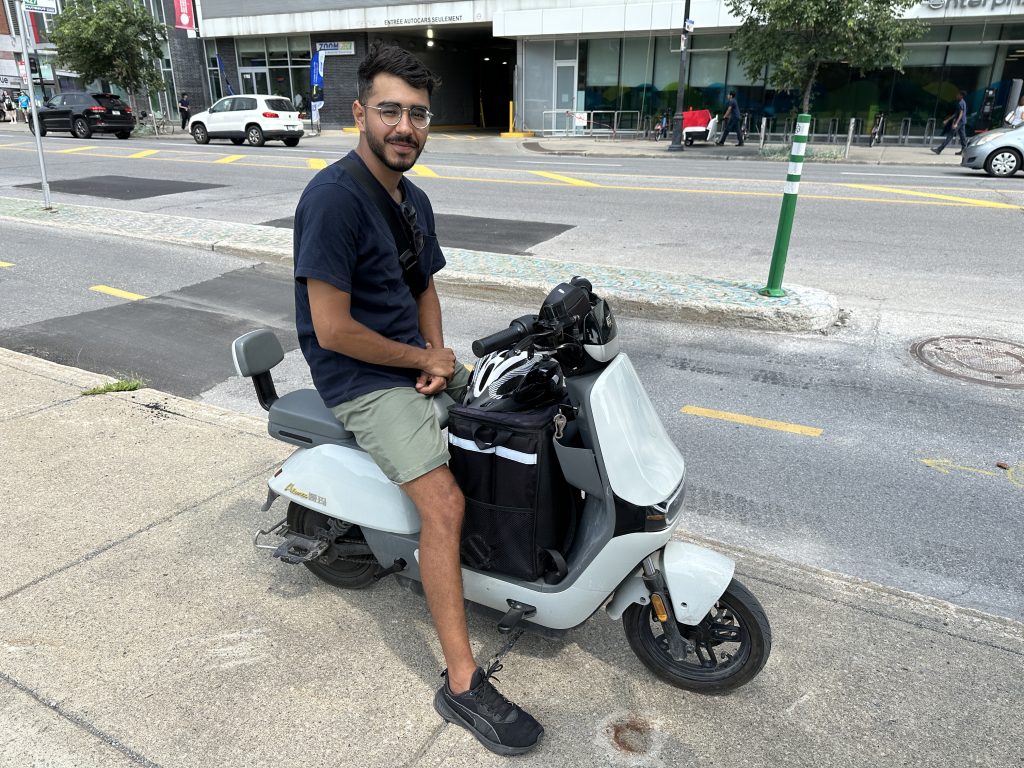Quebec facing backlash after surprise ban of uncertified mopeds and motorbikes

Posted August 2, 2024 12:34 pm.
Last Updated August 2, 2024 10:54 pm.
Quebec’s recent surprise decision to ban uncertified mopeds and motorbikes from bike paths, sidewalks, and roads, has left many both shocked and angry.
“I was surprised why illegal. We work with this,” said Tarek Ould Ali, an international student who delivers food on a moped. “I don’t know what I will do in the future, so it’s very disappointing.”

Uncertified mopeds and motorbikes will from now on be heavily fined. The government is implementing these new measures because it says they pose a safety risk to pedestrians and cyclists because of their speed and weight.
These uncertified vehicles are already banned from being sold or imported new into Quebec because they fail to meet safety standards.
But for some selling them, like Rachid Farissi, owner of ZoomRide in Montreal, he has to figure out what to do with about $180 thousand dollars of inventory that is no longer legal in the province.
“It’s a negative impact on our business, especially we prepared the whole year for the season. And now in the middle of the season they tell us you can’t sell anymore,” said Farissi.

Farissi adds that many of his clients are international students who use these types of electric mopeds to work in the food delivery industry for companies like Uber Eats and Door Dash.
“They don’t have a lot of money. So they choose this machine to work as a food delivery to afford paying the university or school and the rent also. Now it’s a big problem for us, but also for these people who don’t have money.”
Quebec’s auto insurance board has made the new changes because it says it was unfair to the many law-abiding riders who own and use compliant vehicles.
But the government’s move has left many food and delivery drivers who ride these types of bikes now with costly vehicles they can no longer use.
While others, like Velo-Quebec, welcome the ban, saying this measure will make it safer for cyclists to ride their bikes and use Quebec’s biking network.
“It was a daily occurrence and our community kept telling us how they didn’t feel comfortable and safe having to share the bike lanes with these devices. You could see it on regular bike paths in the city. You could see it on the Jacques Cartier Bridge, for example, and it felt like police forces didn’t really have the legal means to crack down on those,” said Magali Bebronne, a spokesperson for Vélo Québec.
“E-mopeds and e-motorcycles create a level of discomfort and a sense of insecurity for regular bike lane users. They are a lot heavier than regular bikes. They can also carry a second passenger so everybody senses that in the event of a collision it would hurt a lot more.”
People who ride unregistered or uncertified mopeds and motorbikes on roads, bicycle paths and sidewalks are now liable to be fined anywhere between $300 and $600.
“We’re going to wait for police forces to be active on this matter now that they have all the legal tools to do so,” said Bebronne.








